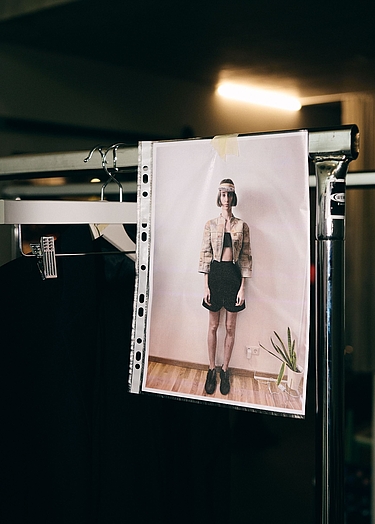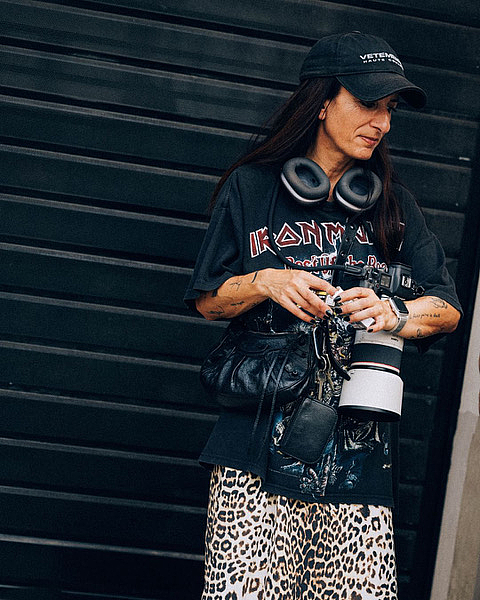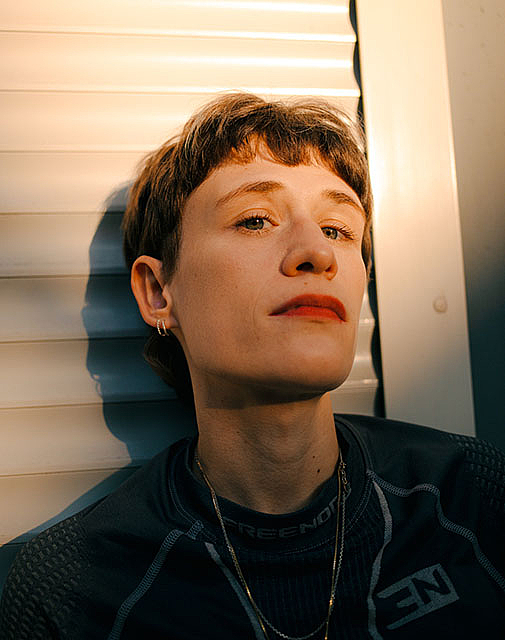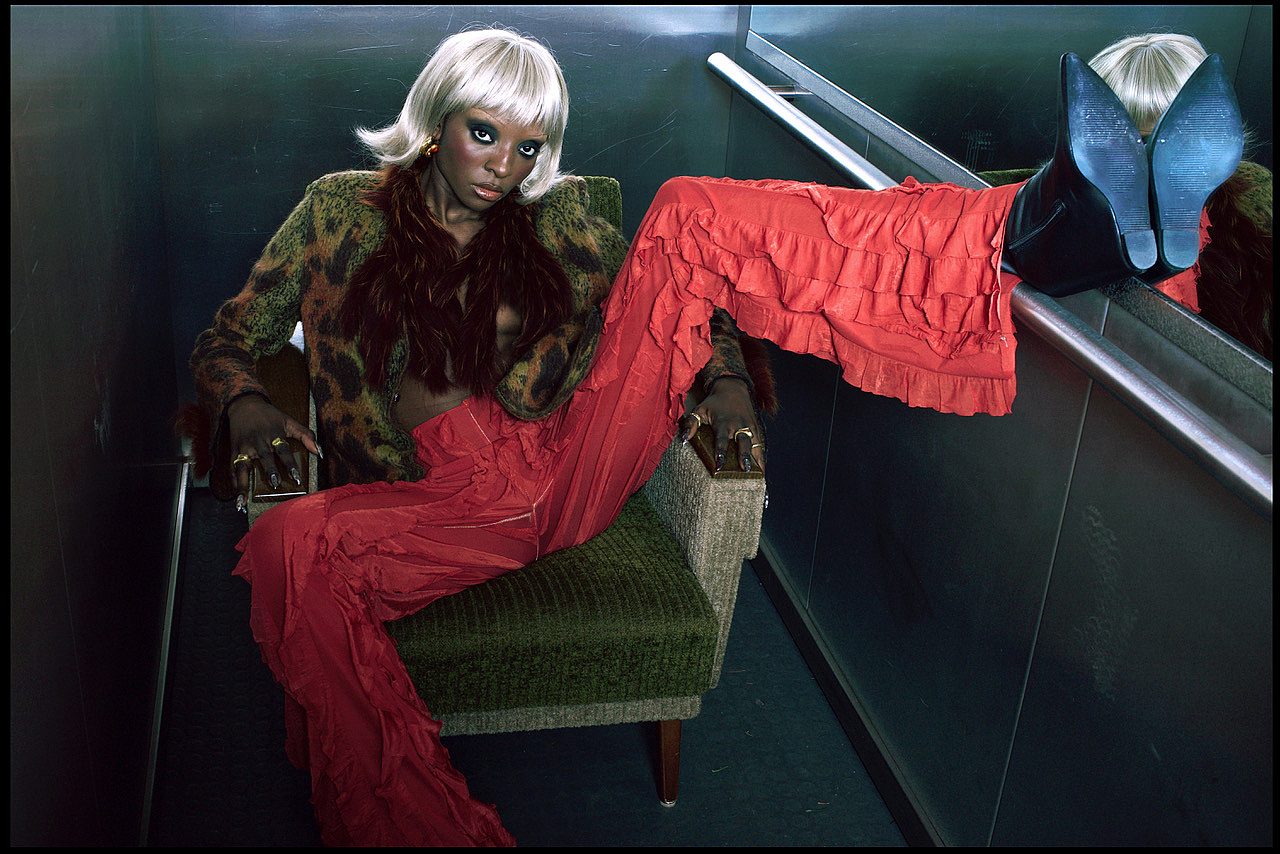
Interview

The fashion world is known for its shiny surfaces, flawless beauty and perfect staging. However, behind this glamourous image lies a complex and often problematic reality in which fierce competition and high pressure prevail. At the same time, one's own person and psychological burdens often remain invisible.
The ‘Mental Health in Fashion’ campaign aims to destigmatise mental illness and expose unhealthy structures throughout the fashion industry - from the visible players to the often unseen workers in the factories. The aim is to raise awareness of mental wellbeing in an industry that appears perfect from the outside but struggles with serious problems behind the scenes.
The ‘A Shaded View on Fashion Film’ festival in Paris is an important milestone for international awareness of this topic. Under the name and in collaboration with the Berlin initiative ‘Mental Health in Fashion’, a new film category will be introduced that offers special insights into the challenges of the global fashion world. Submissions for films have already begun and the fashion film festival will take place in November 2024 at Dover Street Market Paris. By submitting artistic representations to the competition, the aim is to promote a deeper understanding of the often hidden difficulties in the textile and clothing sector.
The following interviews highlight a section of this campaign, focussing on the visibility and mental health challenges of people in the fashion industry who are in the spotlight. It shows how these individuals cope with the pressures and challenges of their work while remaining authentic. Their experiences illustrate the disconnect between the outward glamour of the fashion industry and the actual realities, while also highlighting the need to promote healthier work structures and better awareness that can benefit everyone involved in the supply chain.

Fashion photographer Caroline Kynast on authenticity and the pressure of perfection
Caroline Kynast, a passionate self-taught photographer, became an international street style and fashion photographer through her marketing expertise. Her path has not always been easy, but her creative expertise and ability to capture genuine moments set her apart. Most recently, she photographed the street style trends at Berlin Fashion Week for Vogue.com.
What originally brought you to fashion photography and what did you expect from the fashion industry back then?
I would describe myself as a classic career changer. A marketing client for whom I wrote content concepts made me pick up the camera myself when other photographers couldn't realise my vision. Initially, I expected the fashion industry to offer more visibility and recognition for women. Unfortunately, I realised that female colleagues in press photography are often not taken seriously. It was a tough start, but I learnt to assert myself and find my own style.
‘My street style pictures are real snapshots, not staged scenes.’
How much authenticity is retained in staged fashion images and street style photographs?
For me, originality is the be-all and end-all. My street style images are real snapshots, not staged scenes. Even with editorials, it's often the unplanned moments between poses that end up in the magazines. Credibility suffers when only well-known influencers are photographed. I try to capture people's real personality and not just show a perfect façade.
What do you see when you look at your finished pictures? The people photographed, yourself or your creative vision as a photographer?
When I look at my finished pictures, I see how everything comes together. I remember the special situations during the shoot and feel how my creative vision is reflected in the images. At the same time, I see the personalities of the people photographed and the unique stories that each picture tells. Each photo is a memory of a time when it was taken and carries the emotions and experiences of that moment.
To what extent do you think your photographs can help influence people's self-perception and visibility in the fashion industry?
I want to capture emotions and movement, away from perfection and towards sincere moments. I want viewers to look longer and discover details that would otherwise be lost. This can have a positive influence on the self-perception of the people depicted. It's important that people recognise themselves in the pictures and don't just see an idealised version of themselves.
How do you deal with the pressure to deliver perfect images or meet tight deadlines, and how does this affect your creativity and well-being while working?
The pressure, especially during Fashion Weeks, is enormous. Lack of sleep and constant pressure to be perfect have already put me in hospital. I have learnt to choose my customers more carefully and to pay attention to humanity and respect. This makes me feel better and benefits my work. It's important not to lose yourself and to take time to relax.

Journalist Alexandra Bondi de Antoni on inspiring stories and personal boundaries
Alexandra Bondi de Antoni, a dedicated journalist, finds fulfilment in telling stories and giving people a platform. Her work is characterised by the search for meaningfulness and the promotion of diversity and inclusivity in the fashion industry. Based in Berlin, she also focuses intensively on the intersection of social and political issues, pop culture and fashion.
What sparked your interest in journalism and what aspects of your job fulfil you the most?
I was drawn to the field of journalism because of its ability to convey stories and give people a voice. I learnt a lot during my time at i-D. Their motto is ‘we don't hate, we celebrate’. I still work according to that today. The feeling that my work can move and reach people is priceless to me.
Is there a story or article that has particularly touched you or changed your perspective on the fashion industry and its people?
The article ‘Everywhere and Nowhere’ in ‘The Cut’ about the experiences of Black people in the fashion industry had a huge impact on my perspective. The VOGUE cover with Holocaust survivor Margot Friedländer also reflects an important development and touched me deeply. Stories like this show the highs and lows of the industry and remind me why I chose this profession.
‘Diversity and inclusivity are not buzzwords for me, but are fundamentally important for a fairer future.’
In view of the efforts to increase diversity and inclusivity in the fashion world, how do you manage to create space for topics or people in order to give them visibility?
As a freelance journalist, I rely on editors who support my ideas. Diversity and inclusivity are not buzzwords for me, but are fundamentally important for a fairer future. It's an ongoing discussion, but I always find ways to position these topics.
What are the signs that the demands of your job might be affecting your personal wellbeing and how do you deal with them?
I'm learning to read the signs from my body and pull the emergency brake early on. This is an ongoing process. It's important to find calm and to set boundaries when necessary. Taking breaks is crucial for my well-being. I have learnt to say no and prioritise in order to protect my mental health.
Has your work as a journalist influenced your perception of fashion and identity?
Yes, definitely. I used to only see the glamour of the fashion industry. Now I realise how broken the system is and the challenges it poses. Fashion can inspire and initiate change, but it can also be a burden. My work has profoundly changed my perspective and shown me that true beauty and meaning go far beyond the surface.

Model Whitney Kiala on self-acceptance and representation
Whitney Kiala, a model with a strong voice for diversity and mental health, uses her platform to create new beauty ideals and inspire others. Her career began curiously and naively, but she quickly realised that acceptance and self-love are the keys to success. Through her work, she strives to ensure that everyone, regardless of external characteristics, can feel represented in the fashion industry.
What was your initial perception of the fashion industry when you started your career and how has this impression changed over the years?
At the beginning I was very inexperienced and enthusiastic, thinking it would be an easy job. The reality was harder than I expected. Rejection and the pressure to conform to beauty ideals affected my self-confidence. Today I know that you can only survive in this industry if you love and accept yourself. It was and is a tough learning process, but it has made me stronger.
‘Social media allows models to present more than just their physical appearance.’
How has your approach to focussing on your appearance changed over the course of your career?
In the beginning, it really was a challenge. Now I deal with it calmly. As a model, I have learnt to show different facets of myself. Nowadays, however, my inner strength also plays an increasingly important role. Social media allows models to present more than just their outer appearance. The growing appreciation for the personal story behind the face is a positive development. Therefore, my goal is to show my true side and individuality through my platform.
What role does your identity and cultural background play in your work as a model, and how does this influence your view of the fashion industry?
My identity motivated me to model. There is a lack of representation and I want to create new ideals of beauty. The systematic rejection of Black women has strengthened my will to be visible and give hope. Despite progress, there are still many obstacles that need to be overcome. I am committed to making diversity the norm and not the exception.
Do you ever feel that certain aspects of your personality or life are deliberately made invisible, and how do you deal with this?
As a model, I often find myself in different roles, but I also appreciate the jobs where I can be myself. It's part of my job to be changeable, but there are also moments when my true character is celebrated. This balance is important for my wellbeing. It's about choosing the right projects and not allowing yourself to be bent.
Do you consciously use your platform and visibility to inspire others and raise awareness of issues such as mental health and diversity?
I have to strongly agree with that! My presence on platforms like social media and that of other models from PoC backgrounds inspire the next generation. We show our perseverance and encourage others to believe in themselves and fight for their visibility. Issues such as mental health and diversity are particularly close to my heart. I am committed to ensuring that my story encourages others and proves that success is possible despite all the challenges. For a long time, I felt insecure because of my facial scar - I looked in vain for role models in fashion magazines.